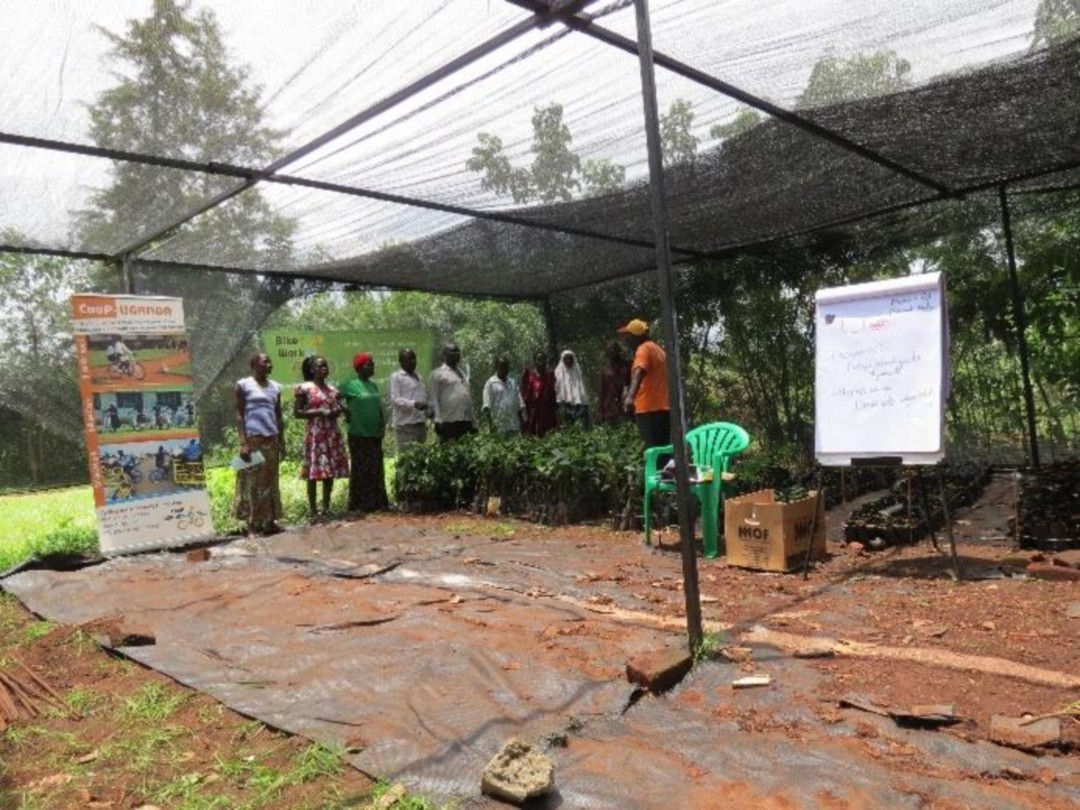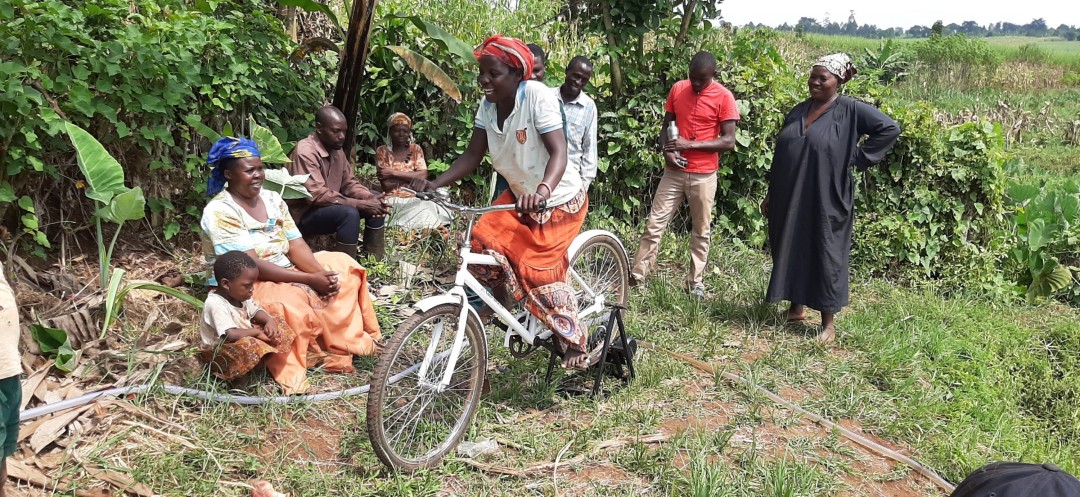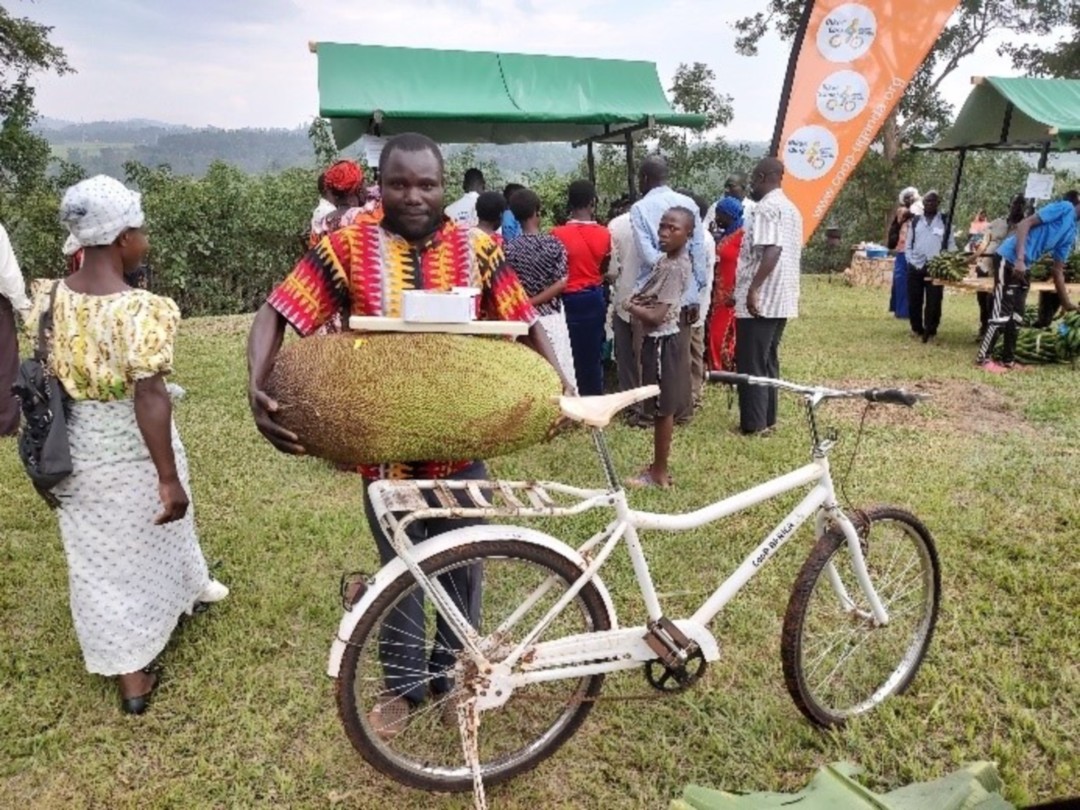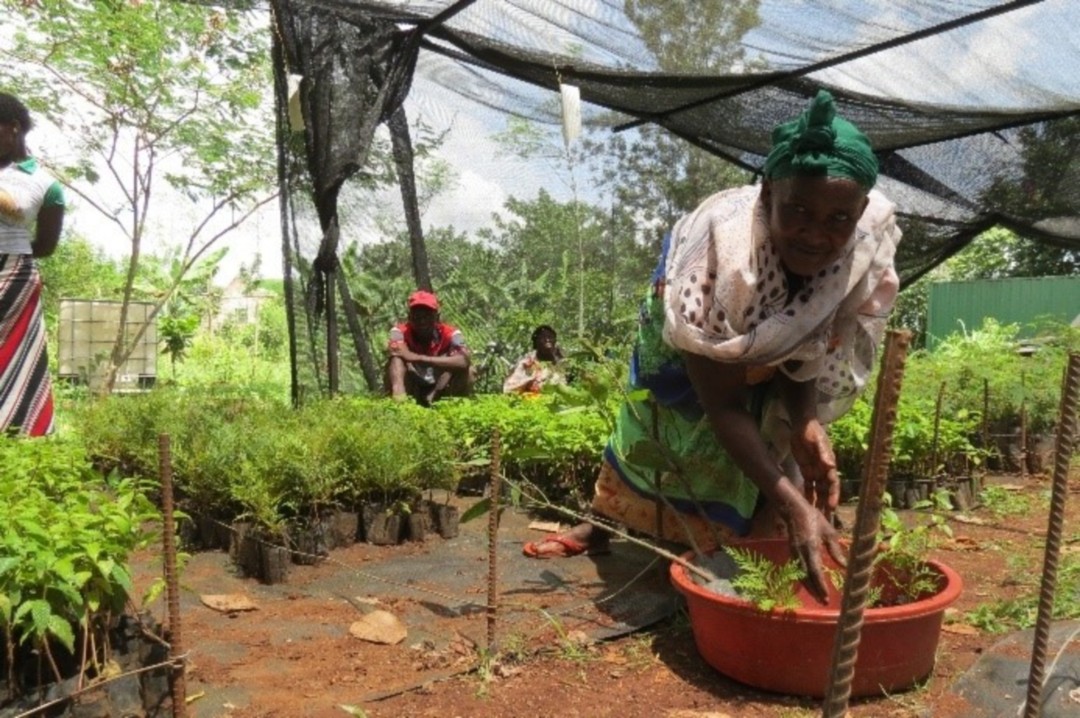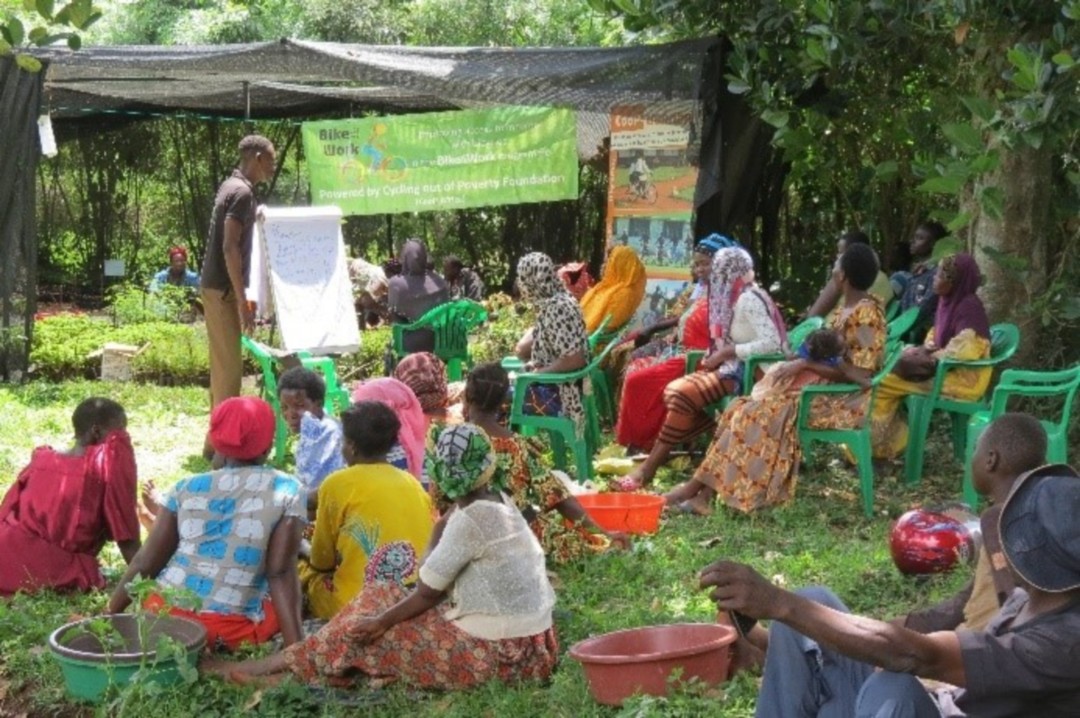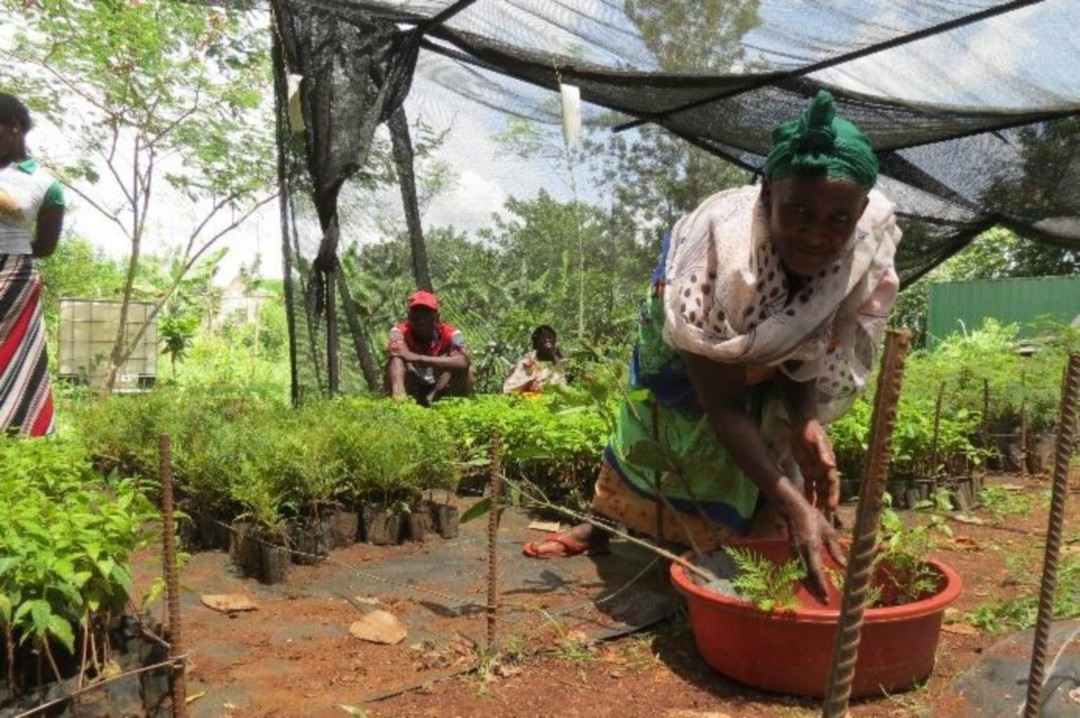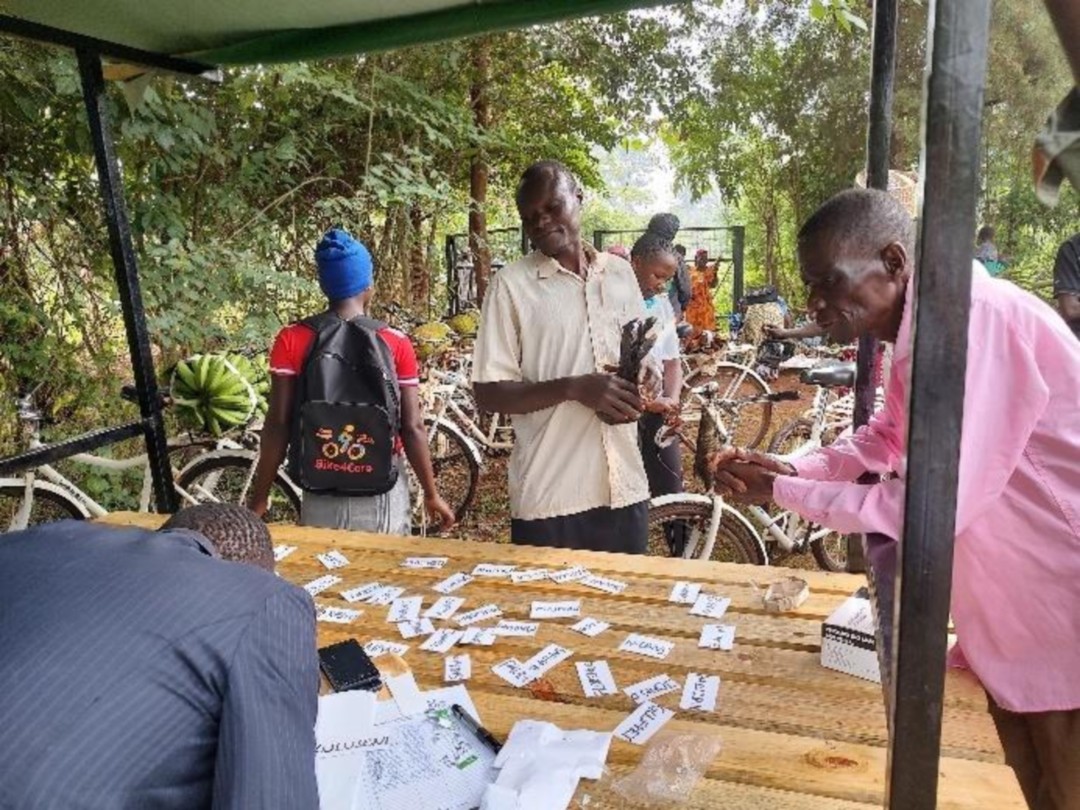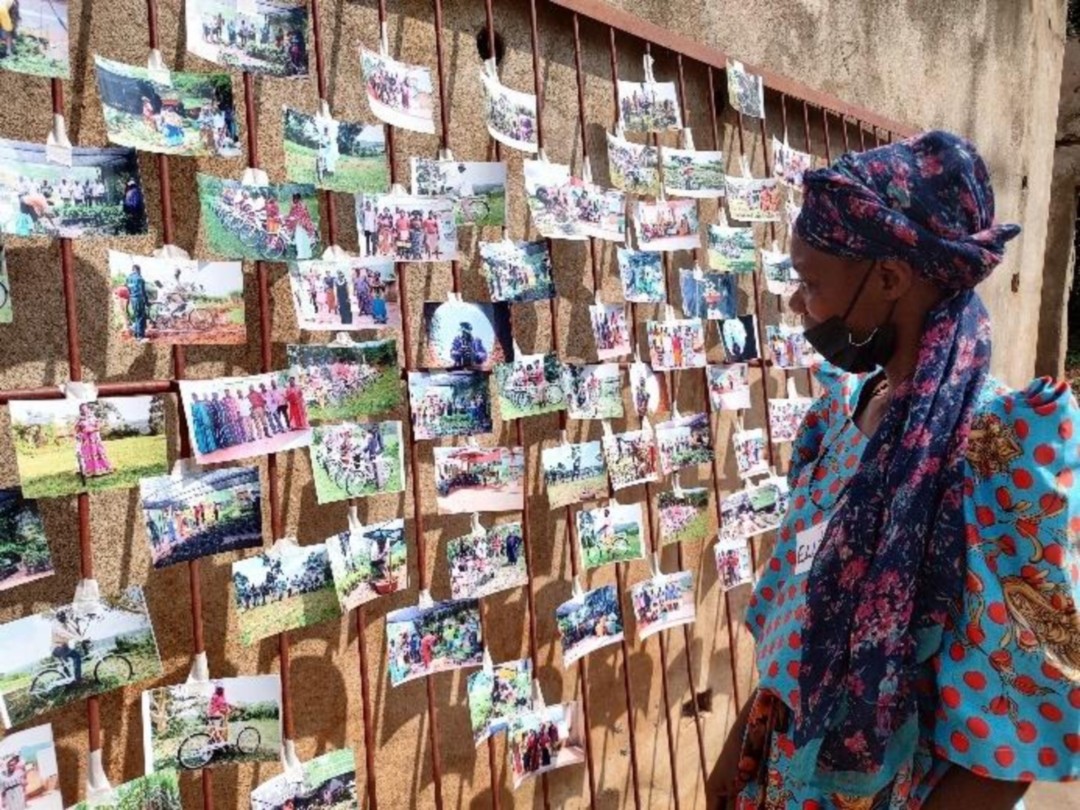Supporting female farmers in the shift to agroforestry
29 November 2022
The project led by CooP-Uganda aimed to give 100, vulnerable small-scale farmer families, the knowledge and the tools to diversify their incomes achieve independence and thrive economically. The farmers were educated, trained and assisted in the shift from subsistence farming to agroforestry but also on and on how to adapt to climate change thanks to climate mitigation agricultural techniques.
Coop-Uganda’s field team regularly visited each farmer to discuss progress over the course of the project. The visits included surveying the planted trees, sharing and learning from each other to improve the agroforestry techniques and determining challenges and needs. Based on the identified areas where more knowledge exchange was welcomed, more meetings were organized for those who were interested, for instance on topics of beekeeping, fish farming, benefits of different trees, composting, zero-waste regenerative agriculture, solar dehydration of foods, etc.
For those topics where the farmers expressed a need to learn more and for which CooP-Uganda did not have knowledge in-house, a field visit was organized for all 100 farmers (at the time group sizes of 25 were allowed) to a farm in a neighboring district. This was a hands-on training, on topics of soil regeneration, composting and vermiculture, and also on animal welfare and animal food production.
As a final event, when Covid restrictions of group sizes were lifted, a special day for all farmers to meet on CooP-Uganda’s demonstration farm was organized.
This was an opportunity to:
- learn: exchange between the farmers was facilitated, and the demonstration plot was utilized for showing best practices. Also an expert in agroforestry was invited to provide ideas and answer questions farmers might have.
- showcase: farmers were invited to showcase their produce, which they proudly did. We awarded prizes to some of the best produce brought to the meeting, such as biggest jacked fruit, largest banana bunch, biggest casava, biggest fish.
- have fun: some farmers were awarded with prizes for the best maintained bicycle, and fastest bicycle water pumper.
- get feedback: in smaller groups, sessions were held whereby the program was evaluated. The farmers gave their feedback on the program and how it was rolled out, as well as on their development made during the course of the program.

